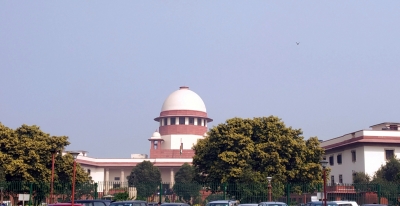'Negligence can't be treated as misconduct': SC reinstates judicial officer
By IANS | Published: March 15, 2022 10:03 PM2022-03-15T22:03:04+5:302022-03-15T22:20:15+5:30
New Delhi, March 15 The Supreme Court on Tuesday observed that negligence cannot be treated as misconduct, as ...

'Negligence can't be treated as misconduct': SC reinstates judicial officer
New Delhi, March 15 The Supreme Court on Tuesday observed that negligence cannot be treated as misconduct, as it reinstated a judicial officer with all consequential benefits, including continuity of service and seniority.
A bench of Justices U.U. Lalit and Vineet Saran said: "Merely because a wrong order has been passed by the appellant or the action taken by him could have been different, this does not warrant initiation of disciplinary proceedings against the judicial officer."
Citing court orders, the bench added: "We hold that the appellant may have been guilty of negligence in the sense that he did not carefully go through the case file and did not take notice of the order of the High Court which was on his file. This negligence cannot be treated to be misconduct."
The bench noted that any "probability" of misconduct needs to be supported with oral or documentary material, and this requirement has not been fulfilled in the present case.
"These observations assume importance in light of the specific fact that there was no allegation of illegal gratification against the present appellant. As has been rightly held by this court, such relief-oriented judicial approaches cannot by themselves be grounds to cast aspersions on the honesty and integrity of an officer," it added.
The top court judgment came on an appeal filed by Abhay Jain, who joined as a judicial officer in 2013, challenging the October 2019 order passed by the Rajasthan High Court.
In 2016, he was discharged from service after a complaint that he passed a bail order with some ulterior/oblique motives and for extraneous considerations. The full court passed the discharge order, noting that his services were unsatisfactory during probation.
The petitioner's counsel argued that the charges against his client are vague and absolutely no details have been provided regarding the allegation of passing the bail order for extraneous considerations/ulterior motives.
The bench, in its 70-page judgement, said: "In this context, there is no detail provided as to what was the said extraneous consideration or ulterior motive, but merely an inference has been drawn on the basis of suspicion. Further, the record reveals that no complaint or other material exists which could form the basis of the said allegations."
The bench noted the present case revolves only around a single bail order, and that too was passed with competent jurisdiction. "Since the respondent (high court) chose to hold an enquiry into the appellant's alleged misconduct, the termination of his service is by way of punishment because it puts a stigma on his competence and thus affects his future career," it added.
The top court set aside the high court judgment and the discharge order passed in 2016. "We direct that while the appellant be reinstated with all consequential benefits including continuity of service and seniority, but will be entitled to be paid only 50 per cent back wages, which may be paid within a period of four months from today," it said.
Disclaimer: This post has been auto-published from an agency feed without any modifications to the text and has not been reviewed by an editor
Open in app